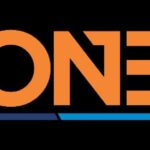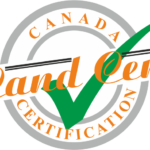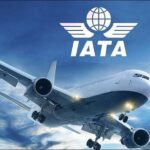Introducing Democratic Republic of Congo
About Democratic Republic of Congo
The Democratic Republic of Congo (DRC) is one of the largest and most enigmatic countries in Africa. It has many beautiful landscapes, mainly comprising dense and undulating rainforest interspersed with waterfalls and teeming with fascinating wildlife.
The great body of the Congo River runs across the northern reaches of the country and has long been a site of considerable historic importance, made famous by the explorer Henry Morton Stanley and later used as the backdrop for Joseph Conrad’s Heart of Darkness.
In many ways, much of the DRC remains as wild and impenetrable today as it would have been in Conrad’s time. The transport infrastructure built by the brutal Belgian colonial regime has largely been reclaimed by the jungle and there are few links between the country’s vast interior and the urban areas dotted around its fringes.
Kinshasa, the capital, is situated in the far west of the country and, though largely impoverished and crumbling, it is a veritable hub for colourful African music and culture.
DRC’s tourist capital, if such a thing exists, is Goma, which sits on the banks of Lake Kivu in the far east of the country. It is presided over by the imposing Nyiragongo volcano, which sits at the heart of Virunga National Park, the oldest national park in Africa and one of just a handful of places where you can still see mountain gorillas in their natural habitat.
Goma and the mineral-rich Kivu region were hit particularly hard by a civil war from 1998 to 2003 that resulted in the deaths of at least three million people; sporadic bouts of violence since the war officially ended have continued to burden the region’s considerable tourist potential.
However, peace and a semblance of stability have returned to Goma for the time being and small handfuls of adventurous tourists are beginning to trickle across the border once again. Visitors are advised to check the latest travel advice before visiting.
Language, Culture & History
History of Democratic Republic of Congo
The Belgian Congo was created in 1885, essentially as the personal property of the Belgian monarch, King Leopold II. He provided only the minimum infrastructure necessary to support the extraction of the country’s vast mineral wealth and killed an estimated 10 million Congolese, setting a pattern which has dominated this troubled country ever since.
By the end of WWII, the Belgian Congo had become one of the many African colonies whose occupiers were concerned simply to dispose of with minimum fuss and maximum commercial advantage.
The Belgian Congo was duly granted independence, with little preparation, in 1960. With the support of the Americans and Belgians – and through the exploitation of the country’s myriad factional, tribal and regional disputes – the new government, headed by the visionary Patrice Lumumba, was deposed after just six months in an army coup led by Colonel Joseph Mobutu. Lumumba was executed.
Four years later, Mobutu took over as head of state and established the regime, which ruled Zaire, as the country was renamed, for the next three decades.
In the 30 years up to his demise, Mobutu Sese Seko (his adopted title) reduced the country to the point where it barely functioned as a nation state. The military campaign that finally brought down the Mobutu regime was triggered by the genocide in neighbouring Rwanda.
The genocide had been brought to an end by the intervention of the Rwandan Patriotic Front (RPF), a Tutsi-led force based in Uganda. The Hutu genocide perpetrators had mostly fled into north eastern Zaire. The RPF pursued them, but their incursion took on a different aspect and a momentum of its own as other groups, including many longterm exiled opponents of Mobutu, coalesced around the RPF.
Laurent Kabila was adopted as leader of this newly-formed anti-Mobutu coalition. By the autumn of 1996, the Alliance des Forces Dernocratiques pour la Liberation du Congo-Zaire (AFDL) had completed their takeover.
Once in power, however, Kabila proved incapable of ruling the country, which was renamed the Democratic Republic of Congo. Years of bloody civil war followed and culminated in the assassination of Kabila by one of his bodyguards in 2001.
He was succeeded by his son Joseph, who won disputed UN-guided general elections in 2006 and 2011. During Joseph Kabila’s tenure, episodes of extreme rebel-led violence have continued to erupt sporadically in various regions, while Kabila’s own human rights record has grown increasingly dubious.
Did you know?
- Although it’s one of the world’s poorest countries, the DRC boasts a space
- Kinshasa and Brazzaville, just on the other side of the Congo River in the neighbouring Republic of Congo, are the closest capital cities in the world.
- The DRC covers a land area larger than the combined territories of Spain, France, Germany, Sweden, and Norway.
Photography: A permit is required. Even then, local authorities are likely to be sensitive. Avoid official areas, airports and riverbanks.
Geography & weather
Weather and climate
Best time to visit
Varies according to distance from the equator, which lies across the north of the country. The dry season in the north is from December to February, and in the south, April to October. The temperature is warm year round and humidity is high.
The Democratic Republic of Congo is the third-largest country in Africa and is bordered to the north by the Central African Republic and Sudan, to the east by Uganda, Rwanda, Burundi and Tanzania, to the south by Zambia and Angola, and to the west by the Republic of Congo and the Angolan enclave, Cabinda. The country has a coastline of only 27km (17 miles), at the outlet of the Congo River, which flows into the Atlantic. The country straddles the equator and has widely differing geographical features, including mountain ranges in the north and west, a vast central plain through which the Congo River flows, and the volcanoes and lakes of the Kivu region. The river has given rise to extensive tropical rainforests on the western border with the Republic of Congo.
Business Opportunities
Doing Business in Democratic Republic of
Congo
Businesspeople should wear lightweight suits. Interpreter and translation services are available as business is mainly conducted in French. The best time to visit is in the cool season (which varies from one part of the country to another).
Office Hours
Mon-Fri 0730-1500, Sat 0730-1200.
Economy
With rich agricultural land and extensive mineral and energy deposits, the Democratic Republic of Congo is potentially one of the richest countries on the African continent. However, decades of chronic neglect at the hands of the corrupt Mobutu left it as one of the poorest, with a per capita annual income of just US$150. Such plans as the Kabila governments may have had for development have been undermined by the civil war.
At least two-thirds of the population are engaged in subsistence farming: farmers produce palm oil, coffee, tea, cocoa, rubber, cotton, tropical woods, fruit, vegetables and rice. Industry runs well below capacity due to a lack of spare parts and foreign exchange with which to buy them.
The country could be one of the world’s largest producers of copper and cobalt, but production is far short of its potential; what is produced has typically been sold by the warring party in control of the mine to finance continued fighting. (In some cases, mining concessions have been handed over to a government ally in exchange for military support: Zimbabwe, which controls several copper mines in the south is the most notable example.)
The mining sector can also produce manganese, zinc, uranium and tin. There are also some oil deposits located off the short Atlantic coastline.
Manufacturing for domestic consumption dominates the industrial sector, producing textiles, cement, food and beverages, wood products and plastics.
GDP
US$8.5 billion (2006).
Main exports
Diamonds, crude oil, coffee, copper and cobalt.
Main imports
Food stuff, fuels, machinery and transport equipment.
Main trading partners
France, Belgium, South Africa and Finland.
Keeping in Touch in Democratic Republic of
Congo
Telephone
Internal telephone service is often unreliable and exists only in major towns. Satellite or cellular telephones are often used by international organisations.
Mobile Phone
Roaming agreements exist with a few international mobile phone companies. Note: Using a handset in public can attract unwanted attention and make the user a target for robbery.
Internet
Available, though power shortages may cause difficulties. There are Internet cafes in Kinshasa.
Media
The Congolese media operate against a backdrop of political power struggles and sometimes violent unrest. The press has been able to criticise the Government bodies in certain publications but the media still do so at the risk of threats and possible violence. There are several daily newspapers; many more publications appear sporadically. There are many privately-run IV and radio stations. Church radio networks are growing, but the state-controlled broadcasting network reaches the largest numbers of citizens.
Post
The country is included in the Universal Postal Union and the African Postal Union. Airmail to Europe takes officially takes four to 18 days but in practice can take much longer.
Post Office hours Mon-Sat 0800-1700.
Plan your trip
Here’s Journey
Flying to Democratic Republic of Congo
Airlines serving the Democratic Republic of Congo include Brussels Airlines (www.brusselsairlines.com), Ethiopian Airlines (www.ethiopianairlines.com), Kenya Airways (www.kenya-airways.com), Royal Air Maroc (www.royalairmaroc.com), South African Airways (www.flysaa.com) and Turkish Airlines (www.turkishairlines.com).
Airport Guides
Kinshasa Airport
Location
The airport is 25km (15 miles) east of the city. TelephoneAddress
Flight times
From London -12 hours (including stopover); New York -19 hours (including stopover).
Departure tax ussso.
Travelling to Democratic Republic of Congo by
Rail
The country’s crumbling rail network means there are no reliable international rail services.
Driving to Democratic Republic of Congo
Getting to Democratic Republic of Congo by
boat
Ferry operators
The international port is Matadi on the Congo River. There are no passenger services to or from Matadi at present. Ferries usually operate across the Congo River from Brazzaville to Kinshasa. In peacetime, there are ferries along the Oubangui River to the Central African Republic.
Staying there
Hotels
The difficult terrain has resulted in relatively few settlements except along river banks. Accommodation is essentially restricted to the main cities, and is virtually non-existent in the interior. For further details, contact the embassy (see Contact Addresses). The few hotels that cater for visitors are expensive and generally booked up well in advance.
The majority of hotels are in Kinshasa, with others in Boma, Bukavu, Kerning, Kisangani, Kolwezi, Lubumbashi, Matadi, Mbandaka, Mbanzangunu and Muanda.
Camping
Other accommodation
While you’re there
Places to see & things to do
Attractions in Democratic Republic of Congo
Discover Upemba National Park
Upemba National Park straddles the River Lualaba and is accessible from the towns of Lubumbashi and Kolwezi. It includes several lakes and picturesque riverine sections inhabited by hippos, crocodiles and aquatic birds. Wildlife stocks were previously decimated by poachers and militias but are slowly returning with the help of the Frankfurt Zoological Society. For now, this beautiful park remains tantalizingly tourism free.
Experience the beauty of Bukavu
The beautiful, verdant town of Bukavu hugs the southern tip of Lake Kivu and serves as a departure point for the under-visited Kahuzi-Biega National Park and Idjwi Island. The former is home to eastern lowland gorillas and some great hiking; the latter is the second-largest lake island in Africa and a perfect spot for a few days peaceful relaxation.
Explore Inkisi Falls
In the southwest, the Inkisi Falls (60m/197ft high) and the massive complex of caves that wrap around them may be visited in one day, but many visitors stay for two or three days at the pleasant resort in the town of Mbanza-Ngungu. The impressive falls are an easy hike from the resort and 130km (80 miles) by road from the capital city Kinshasa.
Feel the pulse of Kinshasa
Kinshasa is a crazy and sometimes scary place. Not for the faint of heart, this sprawling city on the banks of the mighty Congo River has some great nightlife, cultural offerings and music. If the chaos of the capital gets too much, on its fringes there’s an equatorial forest surrounding a beautiful lake called Ma Vallee with a tavern on its banks.
Get to know Garamba National Park
A UNESCO World Heritage Site, this remote national park in the northeast of DRC boasts a staggering array of habitats, from open undulating savannah grasslands to dense rainforests. Managed by African Parks since 2005, Garamba was once home to the last population of wild northern white rhinoceros and still boasts large elephant, hippo and giraffe populations.
Hang out with bonobos at Lolo Ya Sanctuary
Just 90 minutes outside of Kinshasa, this sanctuary provides a home for orphaned bonobos. These inherently peaceful primates, who resemble chimpanzees, are incredibly intelligent and known for solving most of their problems with sex. There are various trails through their forested enclosures, but you’re just as likely to find these loving creatures hanging around by the main building.
See the resurgence of Goma
On the northern shore of Lake Kivu, Goma has been at the centre of the various wars that have engulfed the wider region. As a result, it’s had to become a master of reinvention. It’s the DRC’s tourism capital, if such a thing exists, and the main access point to Virunga National Park. It’s also got a surprisingly lively and youthful arts scene.
Track Gorillas in Virunga National Park
Virunga National Park is Africa’s oldest national park. It comprises two jagged mountain ranges and game that includes lions, elephants, buffaloes, hippos and numerous antelope species. Best of all, this park is renowned for its mountain gorillas. Track these incredible creatures through the dense forest and then peer into an active lava lake from the top of Nyiragongo volcano.
Visit likeable Lubumbashi
Lubumbashi is the capital city of the mineral rich Katanga Province and DRC’s primary economic hub. It’s the country’s most diverse city, and has the best infrastructure, as well as good travel connections with the wider region. But it’s also a pleasant place to explore for a couple of days, with some fine Belgian architecture and good restaurants and accommodation options.
Wander around Kalemie
Enjoy the Democratic Republic of Congo’s areas of watery beauty from the pretty and laidback town of Kalemie on the banks of the immense Lake Tanganyika. The town has a functioning airport to connect with the wider region and Tanzania across the border. There’s also some fascinating, crumbling colonial architecture, colourful markets and pleasant accommodations with great lake views.
Tourist offices
Office National du Tourisme
Address: BP 9502, 2 A/B Avenue des Oranges, Kinshasa-Gombe, Telephone: (12) 30070.
Nightlife & shopping
Shopping in Democratic Republic of Congo
Local craftware includes bracelets, ebony carvings and paintings. The large towns all have markets and shopping centres, selling everything from fresh ginger to baskets and African carvings.
Shopping hours
Mon-Sat 0800-1200 and 1500-1800.
Nightlife in Democratic Republic of Congo
Kinshasa is the best place for nightlife, especially in the sprawling township of the Cite, where most of the population live. In spite of recent political turmoil, the local music scene is thriving. There are hundreds of dance clubs in Kinshasa. Congolese music is popular throughout Africa as well as in Europe and the USA.
Meals & Beverages
Congo’s major towns and cities have a decent and eclectic array of cafés, restaurants and bakeries that bear witness to a rich and complex cultural heritage. Influences include Chinese, Lebanese, French, Belgian, Italian, Arabic, Indian and even South African.
Many of the smarter restaurants and bars are found inside city hotels and lodges, where both food and accommodation can be expensive. For the more adventurous, Kinshasa’s Nganda restaurants serve specialties from different regions of the Congo. A good local beer such as Primus or Skol to wash it all down is never far away.
In the bustling markets, which you’ll find in any populated area, are full of weird and wonderful fruits, vegetables and local delicacies.
Specialties
Moambe: DRC’s national dish consisting of chicken or fish with cassava leaves, hot pepper sauce, bananas, rice, peanuts, fish, chicken, and palm nuts.
Chikwanga: Cassava cooked and stored in banana leaves.
Fufu: A sticky, dough-like staple made from cassava flour.
Pill Pin: Hot chilli sauce or paste served with almost everything.
Satori: A tasty fish dish consisting of tilapia fillets fried with pumpkin seeds, plantains and garlic.
Saka Saka: Ground cassava leaves cooked with palm oil, peanut paste, beans and salt fish.
Maboke: A freshwater fish cooked in large marantacee leaves.
Linguila: A wine made from fermented sugar cane.
Palm wine: A tipple made from the sap of palm trees and fermented by natural yeasts. White elephant: A popular alcoholic drink made from rum, coconut and milk.
Tipping
10% service charge is added to hotel and restaurant bills. Extra tipping is unnecessary.
Drinking age
18.
Getting Around
Air
CAA (www.caacongo.com) operates domestic flights within the Democratic Republic of Congo.
Road
Side of the road
Right
Road Quality
Owing to poor maintenance, the roads are among the worst in Africa and only achieve a fair standard around the main towns. It is wise to check that bridges are safe before crossing. Vehicle thefts, including hijackings at gunpoint, occur.
Car Hire
Available on a limited basis at the airport.
Taxi
Available in Kinshasa but unreliable.
Documentation
International Driving Permit required.
Urban travel
Conventional bus services in Kinshasa can be severely overcrowded. Minibuses and converted truck-buses also offer public transport, and are known asfula fulas. Pick-up trucks are known as ‘taxibuses’. A better standard of transport is provided by shared taxis, which are widely available. There is little or no public transport in most other large centres.
Rail
The main internal railway runs from Lubumbashi to Ilebo, with a branch to Kalemie and Kindu, and from Kinshasa to the port of Matadi. Rail services are generally subject to disruption. There is no air conditioning, but there are couchettes and dining cars on the principal trains.
Water
Over 1,600km (1,000 miles) of the Congo River are navigable and there are sporadic services from Kinshasa to the upriver ports of Kisangani and Ilebo, but services are unreliable owing to political instability and fuel shortages.
Before you go
Visa & Passport
| Australian | Passport required Yes |
Return ticket required Yes |
Visa Required Yes |
| USA | Yes | Yes | Yes |
| British | Yes | Yes | Yes |
| Canadian | Yes | Yes | Yes |
| Other EU | Yes | Yes | Yes |
Passports
To enter Congo, a passport valid for at least six months is required by all nationals referred to in the chart above.
Visas
A visa is required by all nationals referred to in the chart above to enter Congo.
A yellow fever certificate, onward ticket, sufficient funds and letter of invitation are required.
Nationals not referred to in the chart are advised to contact the embassy to check visa requirements for Congo.
Types and Cost
Single-entry transit visa: £30; double-entry transit visa: £60; one-month single-entry visa: £60; one-month multiple-entry visa: £90; two-month single-entry visa: £100; two-month multiple-entry visa: £120; three-month single-entry visa: £140; three-month multiple-entry visa: £150; six-month single-entry visa: £180; six-month multiple-entry visa: £220.
Validity
One to six months. You must use the visa within three months of the date of issue.
Application to
Consulate (or consular section at embassy).
Working days
Allow five to nine working days for visa processing if you apply in person and 10 to 18 days for postal applications. An express service of two to three days is available for an additional charge.
Our visa and passport information is updated regularly and is correct at the time of publishing,
We strongly recommend that you verify critical information unique to your trip with the relevant embassy before travel.
Embassies and tourist offices
British Embassy in Democratic Republic of Congo
Telephone: 8155 66200.
Website: http://wvvw.gov.uk/government/world/democratic-republic-ofcongo
Address: Gombe, 83, Avenue Roi Baudoin, Kinshasa,
times:
Mon-Thurs 0730-1600; Fri 0730-1400.
Embassy of the Democratic Republic of Congo in the USA
Telephone: (202) 234 7690.
Website: http://www.ambardcusa.org/index.html
Address: NW, 1726 M Street, Suite 601, Washington, DC, 20036, Opening times:
Mon-Fri 1000-1700.
Embassy of the Democratic Republic of Congo in the UK
Telephone: (020) 7580 3931.
Website: http://ambardc-Iondres.gouv.cd/
Address: , 49 Great Portland Street, London, W1W 7LT, Opening times:
Mon-Fri 0930-1100 (visa application); Wed-Fri 1100-1200 (collection).
Healthcare
| Title | Special precautions |
| Yellow Fever | Yes* |
| Diphtheria | Yes |
| Hepatitis A | Yes |
| Malaria | Yes |
| Rabies | Sometimes |
| Tetanus | Yes |
| Typhoid | Yes |
A yellow fever vaccination certificate is required by travellers over one year of age.
Health Care
Government expenditure on health is low and the quality of hospitals is poor. It is advisable to take specific personal medicines as well as supplies such as syringes and drip needles, as medical facilities are available only in larger centres. Doctors and hospitals expect cash payment in full for health services. Health insurance is essential and it is advisable to include cover for emergency air evacuation.
Food and Drink
All water should be regarded as being a potential health risk. Water used for drinking, brushing teeth or making ice should have first been boiled or otherwise sterilised. Milk is unpasteurised and should be boiled. Powdered or tinned milk is available and is advised. Avoid dairy products that are likely to have been made from unboiled milk. Only eat well-cooked meat and fish. Vegetables should be cooked and fruit peeled.
Other Risks
Bilharzia (schistosomiasis) is present; avoid swimming and paddling in fresh water. Hepatitis B and E are present and meningococcal meningitis may occur. There is a very high risk of diarrhoeal diseases, the dysenteries and various parasitic worm infections. Ebola outbreaks have occurred. Avoid tick bites which spread African tick typhus. Wear shoes to avoid soil-borne parasites. Rabies is present. For those at high risk, vaccination before arrival should be considered. If you are bitten, seek medical advice without delay.
Holidays
Below are listed Public Holidays in Democratic Republic of Congo
New Year’s Day
01 January 2020
Commemoration of the Martyrs of Independence
04 January 2020
National Heroes Day
17 January 2020
Labour Day
01 May 2020
Liberation Day
17 May 2020
Independence Day
30 June 2020
Parents Day
01 August 2020
Army Day
17 November 2020
Christmas Day
25 December 2020
Duty Free & Currency
Currency information
Franc Congolais (CDF) = 100 centimes. Owing to the precarious nature of the economy, the denominations of the currency are subject to rapid change.
Credit cards
The use of MasterCard and Visa is limited to Kinshasa’s major hotels. Credit cards cannot be used to obtain cash advances at banks.
Travellers cheque
Not recommended. Commission fees are very high, and traveller’s cheques are not accepted outside Kinshasa.
Banking hours
Mon-Fri 0800-1130.
Currency restrictions
The import and export of local currency is prohibited. The import of foreign currency is limited to US$10,000 and the export of foreign currency is unlimited.
Currency exchange
Because of the parlous state of the economy, the only true repository of value is the US Dollar. Free circulation of foreign currencies is now allowed within the country. Note that purchase of airline tickets within the country can be made only with money exchanged officially.
Democratic Republic of Congo duty free
Overview
The following items may be imported into Congo (Dem Rep) by travellers over 18 years of age without incurring customs duty:
- 100 cigarettes or 50 cigars or 227g of
- 1 bottle of alcoholic
- A reasonable amount of perfume for personal
- Cameras if temporarily imported by
Radios, audio equipment and gifts are subject to duty.
Banned Imports
An import licence is required for arms and ammunition.










